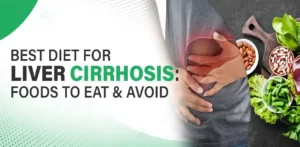Contents
- 1 Understanding Laryngeal Cancer
- 2 The Importance of Nutrition During Laryngeal Cancer Treatment
- 3 Key Components of a Laryngeal Cancer Diet
- 4 Foods for Laryngeal Cancer Patients
- 5 Laryngeal Cancer-Friendly Meals
- 6 Nutrition Tips for Laryngeal Cancer Patients
- 7 Laryngeal Cancer Nutrition Therapy
- 8 Best Foods for Laryngeal Cancer
Laryngeal cancer, a type of cancer affecting the larynx or voice box, can significantly impact a patient’s quality of life, especially when it comes to eating and nutrition. Ensuring proper nutrition during treatment and recovery is crucial for maintaining strength, improving treatment outcomes, and enhancing overall well-being. This blog post will explore the laryngeal cancer diet, provide foods suitable for laryngeal cancer patients, and offer practical nutrition tips and meal ideas to support those undergoing treatment.
Understanding Laryngeal Cancer
Laryngeal cancer develops in the tissues of the larynx, which is located in the throat and plays a vital role in breathing, speaking, and swallowing. Symptoms can include a persistent cough, hoarseness, difficulty swallowing, ear pain, and unexplained weight loss. Treatment options often include surgery, radiation therapy, and chemotherapy, all of which can affect a patient’s nutritional status.
The Importance of Nutrition During Laryngeal Cancer Treatment
Proper nutrition is essential for patients with laryngeal cancer for several reasons:
- Maintaining Body Weight: Cancer treatment can lead to weight loss and malnutrition. A balanced diet helps maintain a healthy weight.
- Supporting Immune Function: Nutrient-rich foods strengthen the immune system, aiding in the fight against cancer and infection.
- Enhancing Treatment Tolerance: Good nutrition can reduce side effects and improve the body’s ability to tolerate treatments like chemotherapy and radiation.
- Promoting Healing: Adequate intake of vitamins and minerals supports tissue repair and recovery post-surgery or therapy.
Also Read: “Navigating Esophageal Cancer: Nutritional Strategies & Cancer-Friendly Recipes”
Key Components of a Laryngeal Cancer Diet
A laryngeal cancer diet should be rich in specific nutrients that support overall health and treatment efficacy. Here are the critical components:
1. Protein-Rich Foods
Protein is vital for repairing tissues and maintaining muscle mass. Include lean meats, poultry, fish, eggs, dairy products, beans, lentils, and tofu in your diet.
2. Healthy Fats
Healthy fats provide energy and help absorb fat-soluble vitamins. Opt for avocados, nuts, seeds, olive oil, and fatty fish like salmon and mackerel.
3. Complex Carbohydrates
Carbohydrates are the primary energy source. Choose whole grains, fruits, vegetables, and legumes for sustained energy levels.
4. Vitamins and Minerals
Ensure an adequate intake of vitamins A, C, and E, along with minerals like zinc and selenium, which support immune function and recovery. Fresh fruits, vegetables, nuts, and seeds are excellent sources.
5. Hydration
Staying hydrated is crucial. Drink plenty of water, herbal teas, and clear broths. Avoid sugary drinks and limit caffeine intake.

Foods for Laryngeal Cancer Patients
Certain foods are particularly beneficial for individuals with laryngeal cancer:
1. Soft Foods
Due to potential swallowing difficulties, soft foods are easier to consume. Consider pureed soups, smoothies, mashed potatoes, yogurt, and scrambled eggs.
2. High-Calorie Nutrient-Dense Foods
To prevent weight loss, include high-calorie options like nut butters, avocado, full-fat dairy products, and smoothies enriched with protein powders or meal replacement shakes.
3. Anti-Inflammatory Foods
Foods with anti-inflammatory properties can help reduce treatment side effects. Include berries, fatty fish, leafy greens, turmeric, and ginger in your diet.
4. Easily Digestible Foods
Digestive issues can be common. Choose easily digestible foods like cooked vegetables, white rice, bananas, and applesauce.

Laryngeal Cancer-Friendly Meals
Here are some meal ideas that are both nutritious and easy to eat for laryngeal cancer patients:
Breakfast Ideas
- Smoothie Bowl: Blend Greek yogurt, a banana, spinach, and berries. Top with chia seeds and a drizzle of honey.
- Oatmeal with Fruit: Cook oats with milk or a milk alternative. Add mashed banana, a handful of blueberries, and a sprinkle of cinnamon.
- Scrambled Eggs with Avocado: Serve soft scrambled eggs with mashed avocado on the side.
Lunch Ideas
- Creamy Vegetable Soup: Puree a mix of cooked carrots, sweet potatoes, and butternut squash with vegetable broth. Add a dollop of Greek yogurt for creaminess.
- Chicken and Avocado Salad: Mix shredded chicken breast with mashed avocado and a squeeze of lemon. Serve with soft whole-grain bread.
- Quinoa Salad: Combine cooked quinoa with diced cucumber, tomato, and feta cheese. Dress with olive oil and lemon juice.
Dinner Ideas
- Baked Salmon with Mashed Sweet Potatoes: Season salmon with herbs and bake. Serve with mashed sweet potatoes and steamed spinach.
- Lentil Stew: Cook lentils with diced carrots, celery, and tomatoes. Add spices like turmeric and cumin for flavor.
- Stuffed Bell Peppers: Fill bell peppers with a mixture of ground turkey, quinoa, and vegetables. Bake until tender.
Snack Ideas
- Yogurt with Honey and Nuts: Top Greek yogurt with a drizzle of honey and a handful of crushed nuts.
- Fruit Smoothie: Blend your favorite fruits with milk or a milk alternative, and add a scoop of protein powder.
- Soft Cheese and Whole-Grain Crackers: Choose a soft cheese like brie or goat cheese and pair with whole-grain crackers.
Nutrition Tips for Laryngeal Cancer Patients
1. Eat Small, Frequent Meals
Smaller, more frequent meals can be easier to manage than three large meals a day, especially if you have a reduced appetite or difficulty swallowing.
2. Focus on Calorie and Protein Intake
If maintaining weight is a challenge, prioritize calorie-dense and protein-rich foods. Adding a tablespoon of olive oil or nut butter to meals can increase calorie intake without increasing portion sizes.
3. Stay Hydrated
Sip fluids throughout the day. If water is difficult to swallow, try broths, herbal teas, or diluted fruit juices.
4. Modify Food Textures
Pureeing or blending foods can make them easier to swallow. Experiment with different textures to find what works best for you.
5. Avoid Irritants
Steer clear of foods and drinks that can irritate your throat, such as spicy foods, acidic foods (like citrus fruits and tomatoes), and alcohol.
6. Monitor and Address Side Effects
Be aware of treatment side effects like nausea, dry mouth, or taste changes. Tailor your diet to manage these symptoms, such as eating bland foods during nausea or sucking on ice chips for dry mouth.
Laryngeal Cancer Nutrition Therapy
Nutrition therapy involves working with a dietitian to develop a personalized eating plan that meets your nutritional needs and accommodates your treatment side effects. A registered dietitian can help:
- Assess Nutritional Status: Evaluate your current diet and nutritional needs.
- Create a Customized Plan: Develop a meal plan tailored to your preferences and treatment regimen.
- Provide Ongoing Support: Adjust your diet as needed based on your treatment progress and any new symptoms.
Also Read: “Optimal Nutrition for Lung Cancer: Best Foods for Your Health”

Best Foods for Laryngeal Cancer
While individual dietary needs may vary, some of the best foods for laryngeal cancer patients include:
- Lean Proteins: Chicken, turkey, fish, eggs, tofu, and legumes.
- Healthy Fats: Avocado, nuts, seeds, and olive oil.
- Whole Grains: Brown rice, quinoa, oats, and whole-wheat products.
- Fruits and Vegetables: Soft or cooked options like bananas, applesauce, berries, leafy greens, carrots, and sweet potatoes.
- Dairy or Dairy Alternatives: Greek yogurt, cottage cheese, and fortified plant-based milk.
Managing laryngeal cancer through diet involves careful consideration of nutrition to support treatment and enhance quality of life. By incorporating a variety of nutrient-dense foods, adjusting meal textures, and staying hydrated, patients can improve their overall well-being and treatment outcomes. Collaboration with healthcare professionals, including dietitians, can provide tailored guidance and support throughout the journey. Embrace these laryngeal cancer-friendly meals and nutrition tips to nourish your body and boost your strength during this challenging time.



